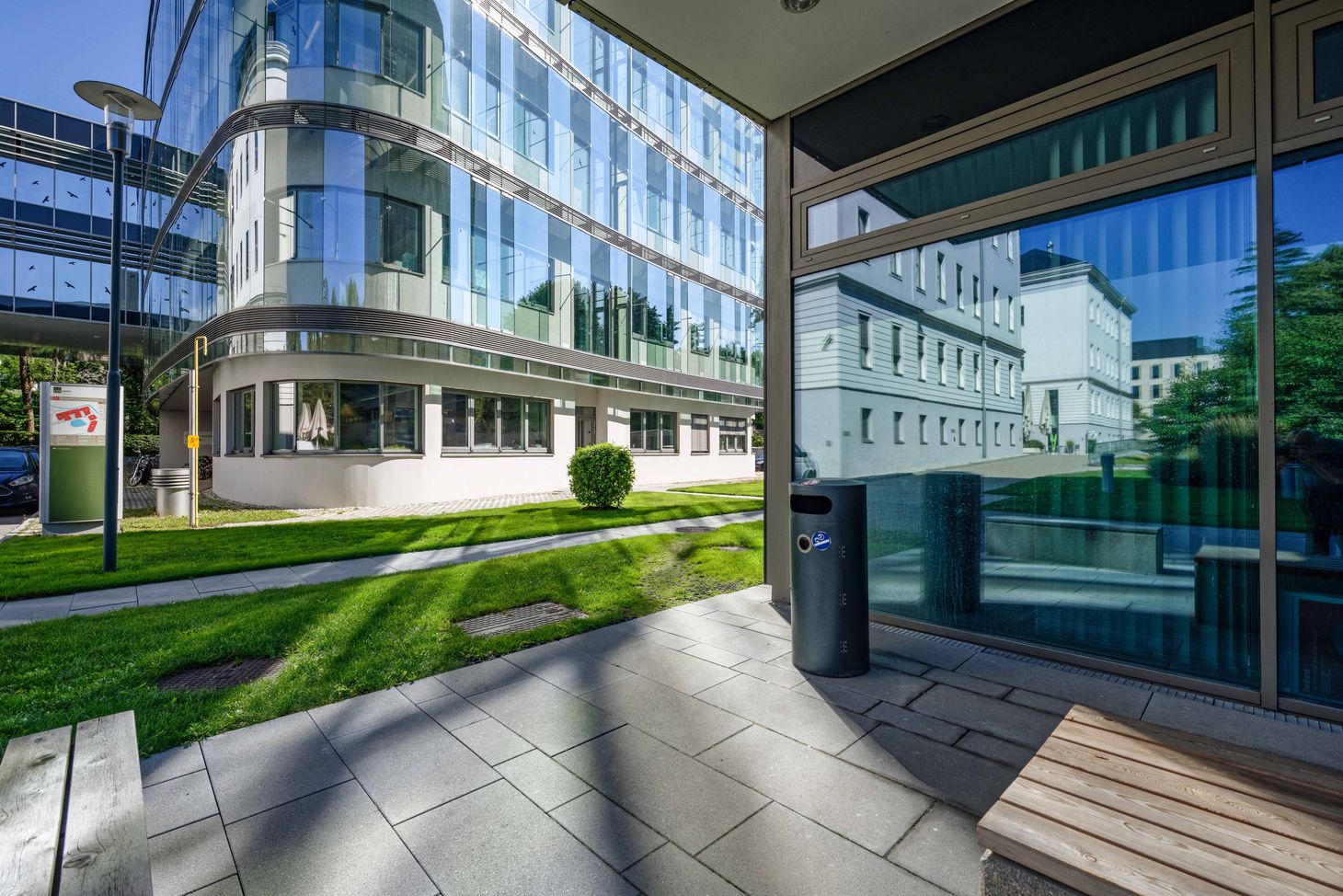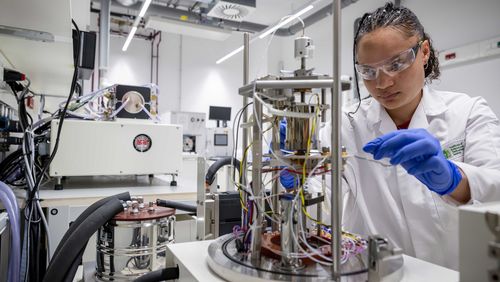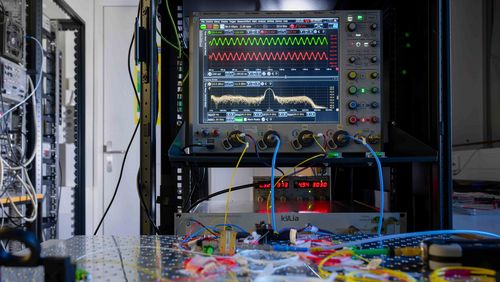
Striving for knowledge and innovation
The Institute of Science and Technology Austria (IST Austria) is young and pioneering—just like the professors who teach and research there. And while the application process for a position at IST Austria is long and arduous, those who succeed are guaranteed the support they need to conduct cutting-edge research. Among the chosen few is physicist Dr Maria Ibáñez, whose search for thermoelectric high-efficiency materials at IST Austria has been funded by the Werner Siemens Foundation since September 2020.
Catalonian physicist Maria Ibáñez is specialised in nanomaterials. Together with her team, she seeks new kinds of high-efficiency materials that can convert temperature differences into electricity. Her work draws on the phenomenon known as the thermoelectric effect: the build-up of electric voltage across a temperature gradient causes electricity to flow. Although it was first described nearly 200 years ago, no materials have been found that are able to utilise the phenomenon for high-efficiency, cost-effective power generation. Due to its low energy conversion efficiency, at just some six percent, thermoelectricity is simply not viable as an everyday source of power. Maria Ibáñez wants to change this: the physicist is going deep—down to the nanoscale—in her search for new, efficient and low-cost thermoelectric materials.

Research and family
For the past two years, assistant professor Maria Ibáñez has been teaching and researching at IST Austria, located north of Vienna, at a state-of-the-art campus built next to the renovated and repurposed former state asylum Gugging. Maria Ibáñez is, however, not just a dedicated scientist—she also has a family. After bringing her son to the IST campus day-care centre, she pursues her demanding, interdisciplinary research. At IST Austria no effort is spared to ensure that researchers can balance having a family and a career. At 5 pm, Maria Ibáñez picks up her son and embarks on the 30-minute bike ride home. Her evenings are spent enjoying family life with her husband and son.
Responsible and engaged
“I’m interested in how things work,” says Maria Ibáñez. Over the past two years, this basic attitude has stood the PhD in physics in good stead: since taking up her position as assistant professor with her own research group at IST Austria, she has played an instrumental role in planning how the new chemistry lab at the campus is to be built and equipped. In addition to determining the technical instruments she needs for her research—including an X-ray diffractometer and an inductively coupled plasma optical emission spectrometer—she also worked closely with the construction manager to find the best solutions for the ventilation system, electricity supply and lighting as well as the pipelines for gases and water. Not exactly typical for the job of assistant professor. “The whole building phase was really intense,” Ibáñez is ready to admit, “but the institute’s commitment to the new lab and the responsibility I was given helped me develop deep ties to IST.” 2021 will see the completion of “her” new chemistry lab, where Ibáñez’s research group will share the generous space and lab infrastructure with other research groups. In her own, tailormade section of the lab, she can focus her energies entirely on the search for new thermoelectric nanomaterials.
Text: Brigitt Blöchlinger
Photos: Felix Wey





